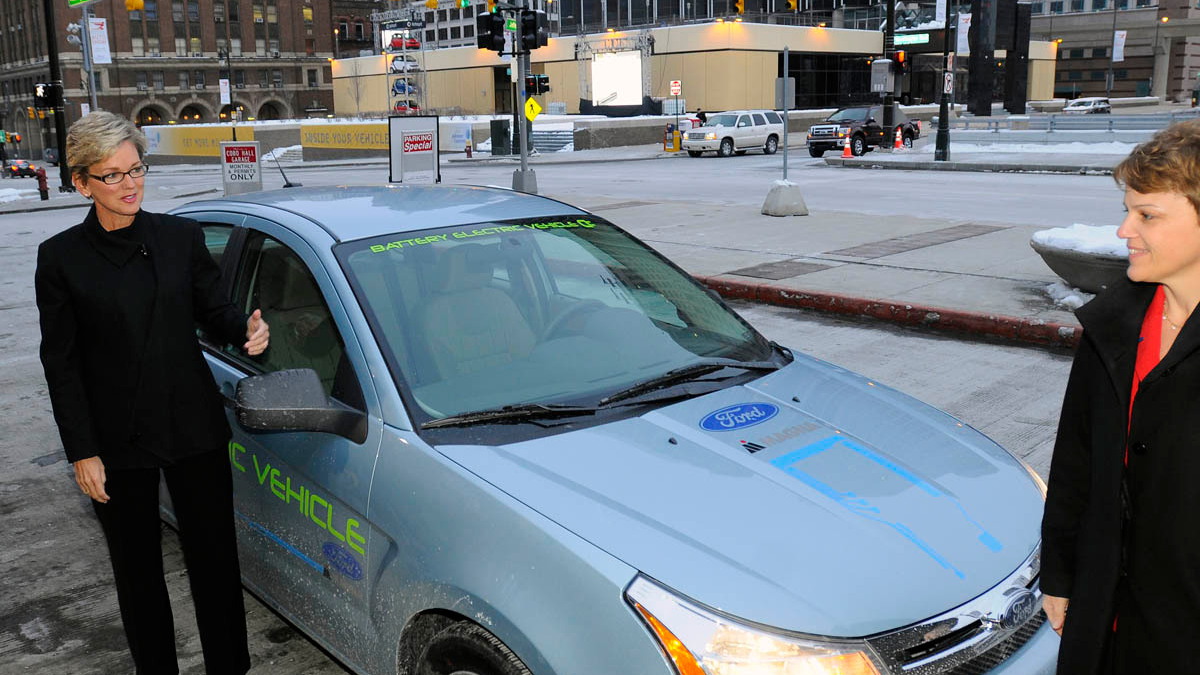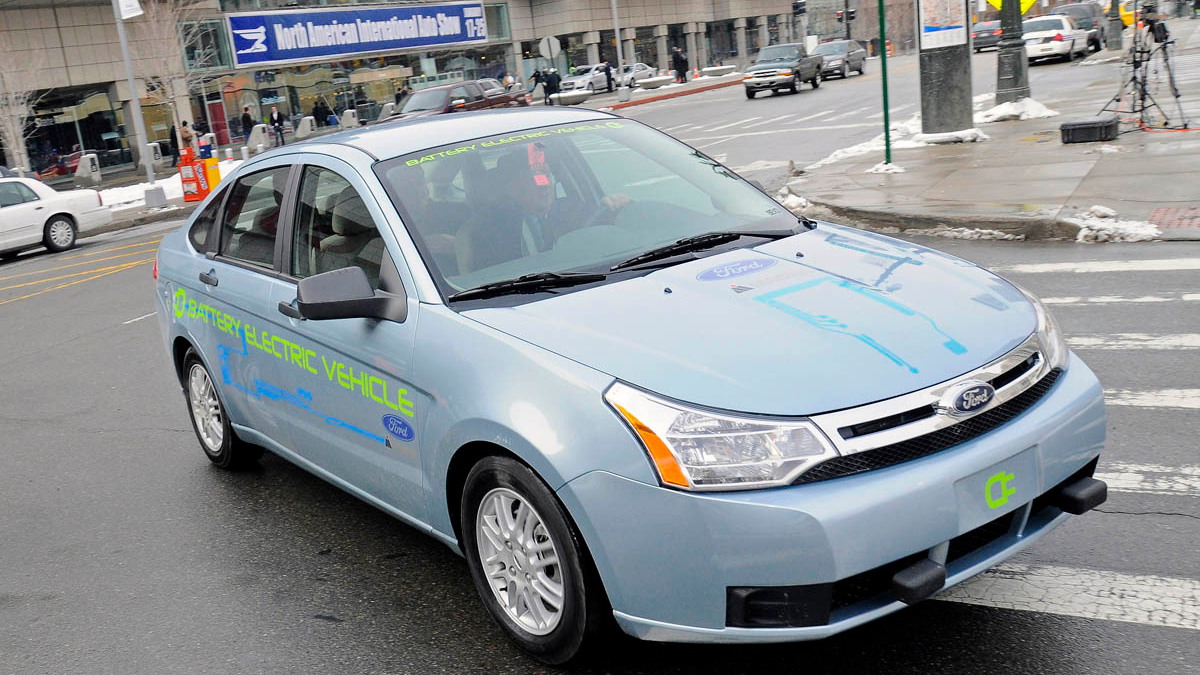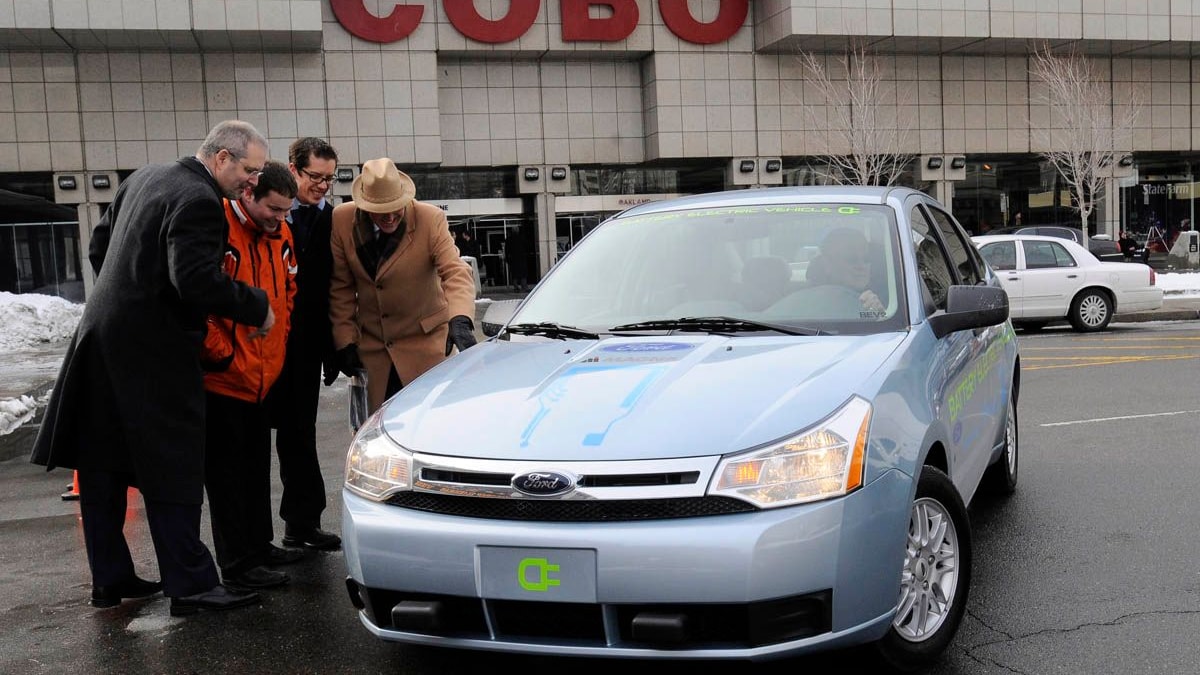The onboard battery charger will be capable of plugging into a 110 or 220-volt outlets, and charge times will vary from about 6 to 12 hours depending on the outlet type used. The decision to stray from the plug-in hybrid technology already being developed at Ford (for use on an Escape platform) and favored by rival General Motors, was based in limiting cost and complexity. The plan is to have the car on the market by 2011.
Before the Focus EV comes into being, however, Ford is planning on a battery-powered commercial van for 2010. The van, Focus-based EV and other elements of Ford's plug-in, hybrid and electric future were discussed in some detail at the 2009 NAIAS.
As a sort of proof-of-concept exercise, Magna built an all-electric Focus to demonstrate its capabilities to Ford, and showed the results to the company in August of last year. Ford was so taken with the idea that they decided to move to production with it - concept vehicle at the Detroit Auto Show was the very same car, reports The Detroit News.
Magna has been building whole cars for a number of carmakers in Europe for years but this would be the first time in recent history that a parts supplier would be doing final assembly on a contract basis for a North American carmaker.
If the deal goes ahead, Magna will also build much of the vehicle’s powertrain, including its battery pack and cells, traction motor, transmission and vehicle control units. Of course it will all depend on Ford being able to secure enough volume sales to justify the vehicle's production.
Fuel prices will remain a huge influence on the future of the hybrid and electric vehicle industry - the current relatively low cost of gasoline in the U.S. won't allow carmakers to recuperate the cost of the more expensive hybrid or electric drivetrains, and it doesn't give the buyer any short-term incentive to accept the higher initial cost of the technology. Nevertheless, with new CAFE standards in the works and strong incentives from the government (beyond the so-called 'bailout' loans) to advance high-tech automotive projects, however, the road toward an all-electric Ford may not be as tough as it looks at first glance.
Early last year Magna, through its Magna Steyr European division, showed off some of its talents with the unveiling of the MILA Alpin hybrid concept. The show car featured a number of advanced electric powertrain technology, including a hybrid system that could work with any type of internal combustion engine.


